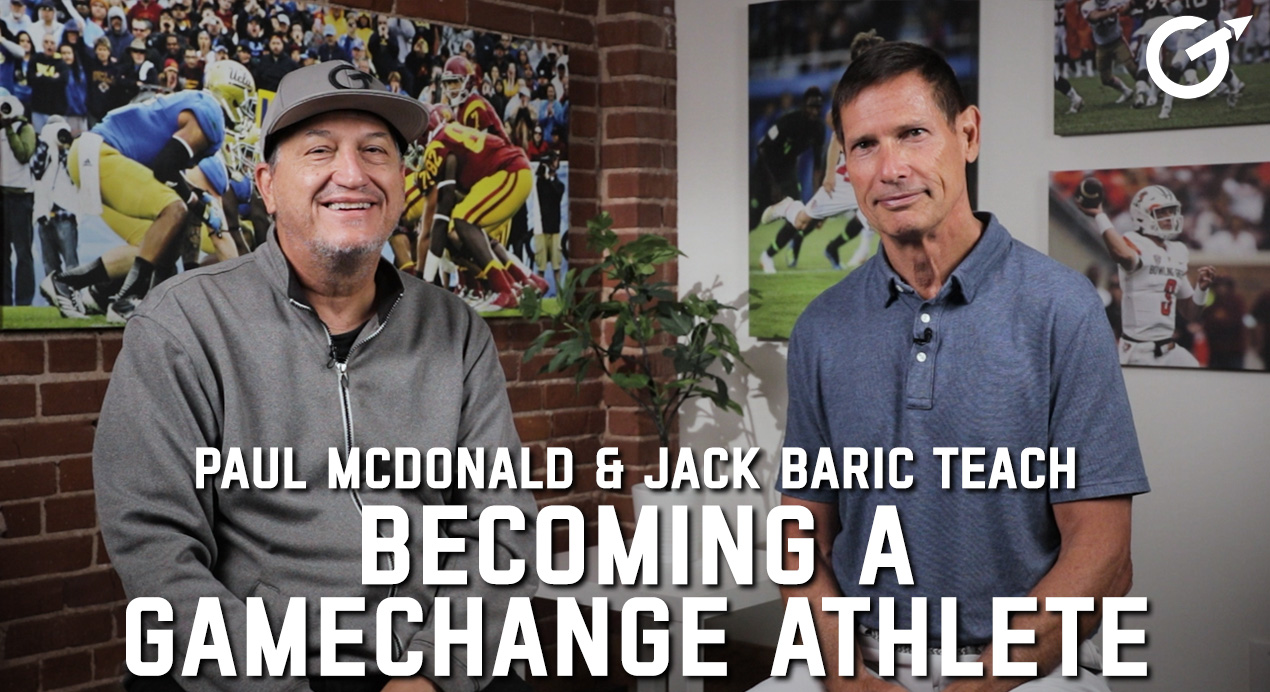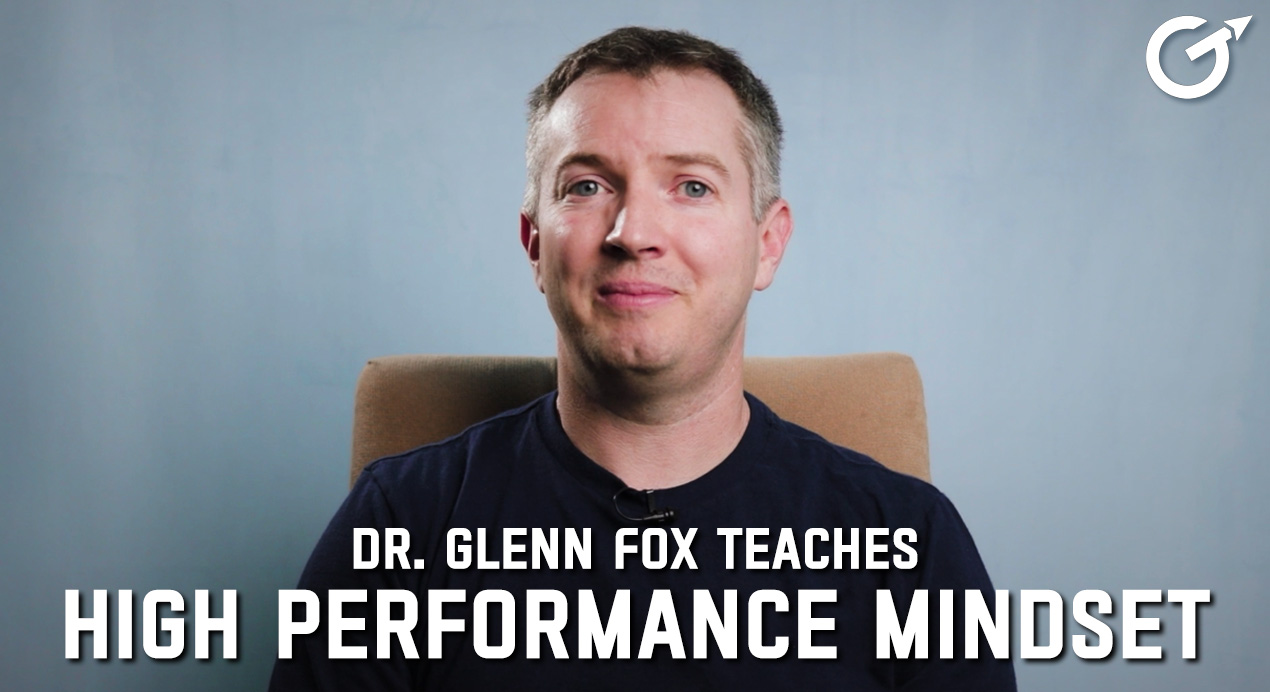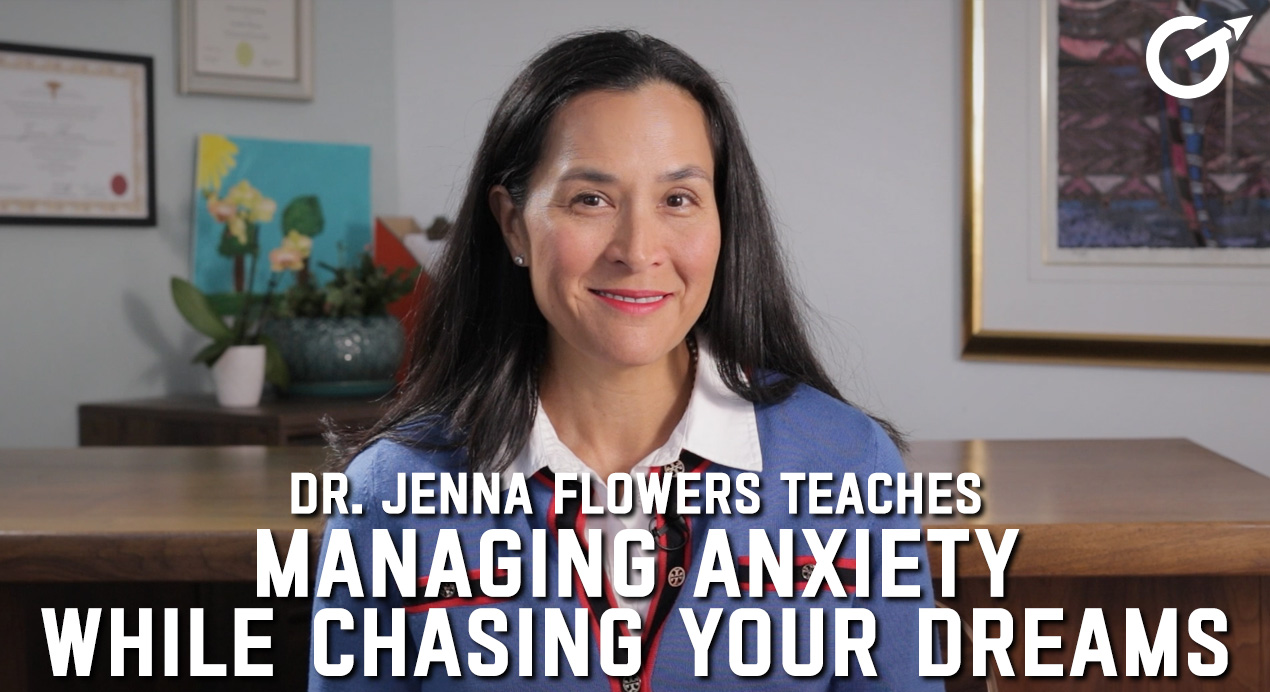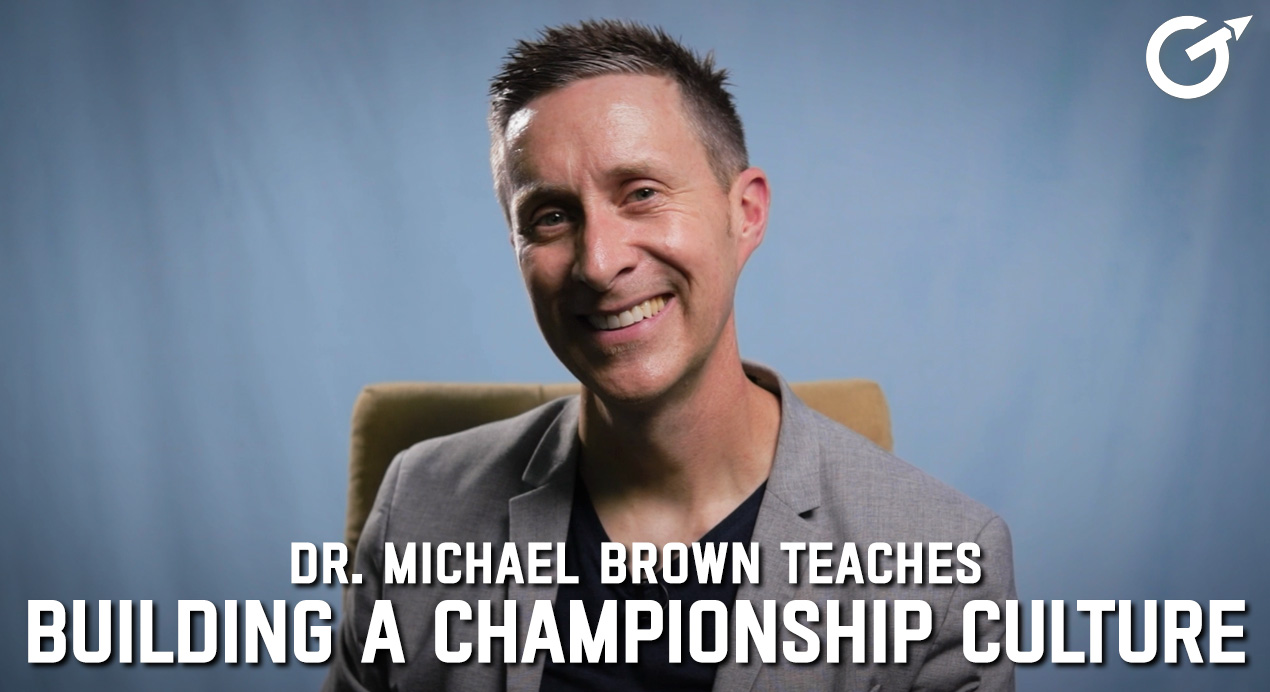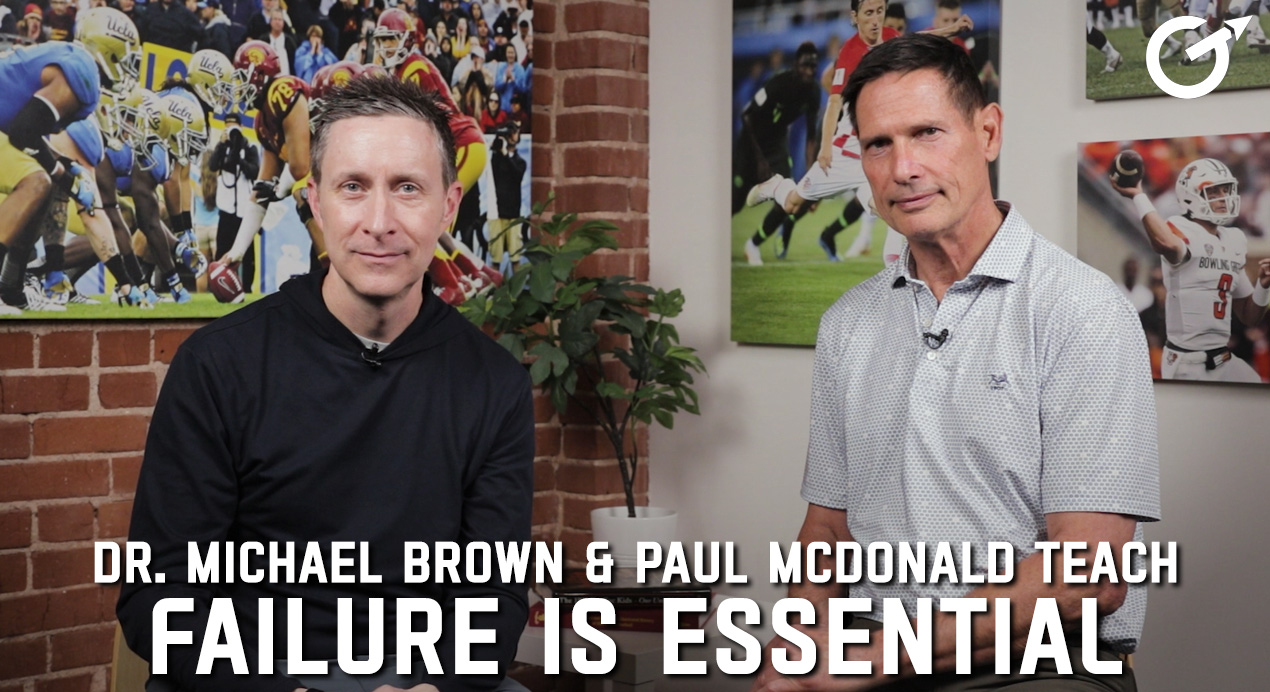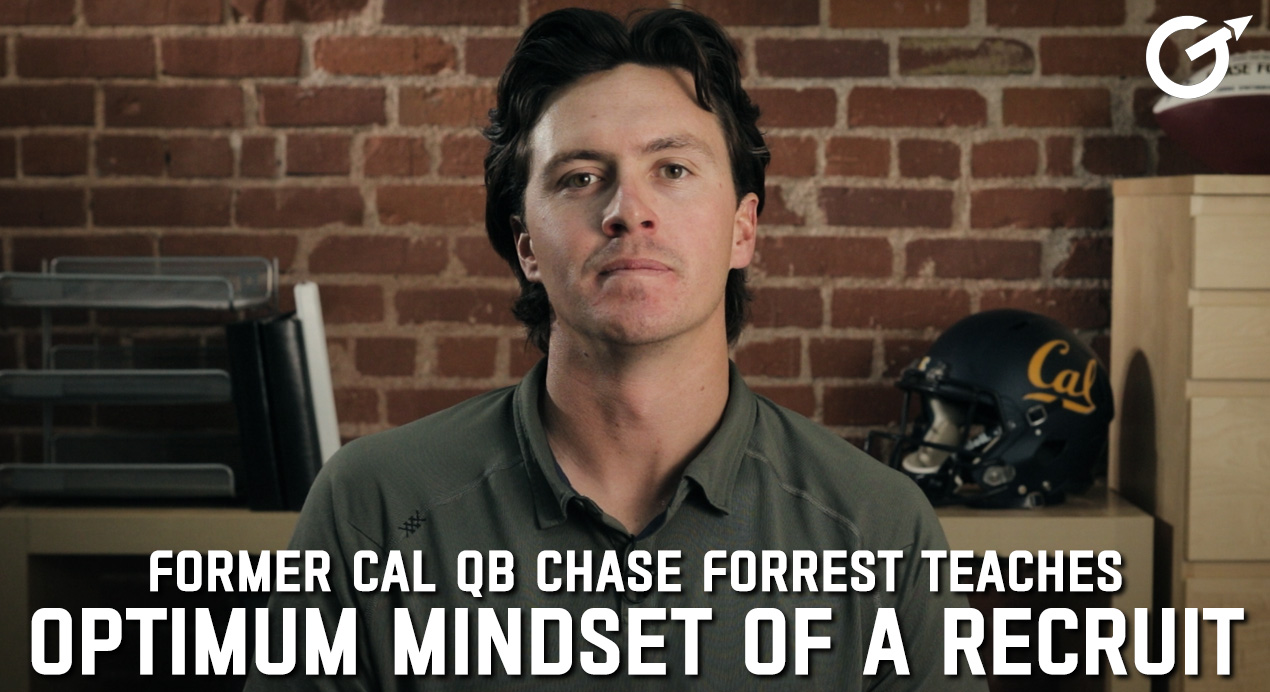Complete GameChange
Training Camp Course List
A curated list of all GameChange Training Camp courses, designed for educators and coaches to quickly find and select programs to offer their students and athletes.
Course List
Becoming a GameChange Athlete by Paul McDonald and Jack Baric Episode 1
Jack and Paul point out that often the difference between the benchwarmer and the all-star is their mindset. They offer various tips on building a positive mindset, such as discovering your motivation through self-reflection, grit, trusting the process, and knowing change is possible.
Becoming a GameChange Athlete by Paul McDonald and Jack Baric Episode 2
Paul and Jack provide various tools for athletes suffering from a lack of self-belief. It starts at practice, be humble, don’t let a losing streak it away, it happens one step at a time, find a good support system, change is possible, and failure is only temporary.
Becoming a GameChange Athlete by Paul McDonald and Jack Baric Episode 3
This class emphasizes the importance of self-reflection to help athletes determine what they want from life and who they want to become. Paul and Jack discuss the danger of wrapping your personal identity around your accomplishments and instead to focus on what kind of person you want to become and to use the platform of sports to help others.
Becoming a GameChange Athlete by Paul McDonald and Jack Baric Episode 4
Living authentically is massively important if you want a life of joy and success. Paul and Jack teach to set your own expectations, not those of others. They warn against comparing yourself to others and encourage you to focus on your strengths on the path to becoming your best self.
Becoming a GameChange Athlete by Paul McDonald and Jack Baric Episode 5
Going for many things in life takes courage, but Paul and Jack explain that greatness won’t come without the willingness to fail. They provide tips such as not being attached to the outcome, trusting the process, and realizing there are many times in life when positive things occur that would not have happened if it wasn’t preceded by something negative.
Becoming a GameChange Athlete by Paul McDonald and Jack Baric Episode 6
Successful people are typically those who exhibit grit during tough times. Grit starts with motivation. Do you really want it? Paul and Jack teach to focus on things you can control when facing adversity and that challenges are good because we grow the most during adverse times.
Becoming a GameChange Athlete by Paul McDonald and Jack Baric Episode 7
Paul and Jack teach that having the courage to fail is the price of success. They explain that fear of failure is natural, but the outcome is usually not as bad as we imagined it might be. However, they add that sometimes hard times take more than courage and to ask for help if needed.
Becoming a GameChange Athlete by Paul McDonald and Jack Baric Episode 8
Paul and Jack explain that it’s nearly impossible to move forward and grow if you are constantly looking back and dwelling on past hurts. They teach that it is important to both stop beating yourself up for your mistakes and to forgive others for their transgressions against you.
Becoming a GameChange Athlete by Paul McDonald and Jack Baric Episode 9
It is easy to drift off course in life if you are not paying attention to your daily thoughts, emotions, and actions. Paul and Jack encourage students to be conscious by creating a journal that states their goals, tracks their weekly progress, and notes any necessary adjustments to the plan. They also recommend taking time to do meditation and visualization exercises.
Becoming a GameChange Athlete by Paul McDonald and Jack Baric Episode 10
Gratitude is used in the training of elite units, such as Olympians and Navy Seals because learning to appreciate what we have puts the focus on resources available to us rather than lamenting what we don’t have. Paul and Jack tell stories that illustrate the power of gratitude and teach the importance of having an abundance mindset when pursuing your goals.
Becoming a GameChange Athlete by Paul McDonald and Jack Baric Episode 11
Paul and Jack provide various tips on how to give and receive the support we all need: Body language is huge in creating a supportive team environment. Picking friends that support you starts with you being supportive of them. We should all both seek mentorship and provide mentorship. Our painful experiences can be used to help others going through the same things.
Becoming a GameChange Athlete by Paul McDonald and Jack Baric Episode 12
The things we learn playing sports can provide a great foundation for living a championship life. Paul and Jack teach: There’s nothing more cool than sharing your triumphs with friends and family. Playing with purpose (for others) is way more powerful than for oneself. We should all seek balance (take time for your family!). Loving and serving is why we are all here.
Course List
High Performance Mindset by Dr. Glenn Fox Episode 1
Many elite athletes and professionals are keen to gain a competitive advantage by developing their mindset. Dr. Fox outlines his program that asks students to 1) reflect on what motivates them, 2) put in the necessary work to develop their skillset, and then 3) have the courage to step into the arena and go for it.
High Performance Mindset by Dr. Glenn Fox Episode 2
Dr. Fox explains why having an attitude of gratitude so important. As you notice the things around you that you have your brain is more primed to see other avenues of resources that you have at your disposal. This helps to develop resilience and a can-do attitude.
High Performance Mindset by Dr. Glenn Fox Episode 3
Having a purpose that is greater than ourselves, where our work is inspired by the desire to help family, friends, community, and even strangers, is seen as a quality that we admire in highly decent people. It turns out that it helps performance too. Dr. Fox relates how scientific data shows that living with purpose can be a great predictor of how far you will go in life.
High Performance Mindset by Dr. Glenn Fox Episode 4
Although having a positive perspective (seeing the glass as half full) is admirable, it is not a good definition of optimism. Dr. Fox teaches that optimism is the belief that our plans and actions can have an impact on future outcomes. Optimistic people are more apt to create a plan and stick with it when things get challenging because they believe it’s within their power to achieve the desired outcome. This leads to far greater levels of success than people who lack optimism.
High Performance Mindset by Dr. Glenn Fox Episode 5
You’ve probably heard of the 10,000 Hour Rule. It’s not a secret that you have to put in many hours of work to make you an expert at something. But it turns out 10,000 hours is an arbitrary figure. Some expertise takes more, others less. Dr. Fox states that also practicing in other fields has tangential benefits that can help develop skills in your core expertise. (This idea makes a strong case for student athletes to play more than one sport).
High Performance Mindset by Dr. Glenn Fox Episode 6
Dr. Fox teaches that all good habits start with motivation. He urges students to imagine the story of their life. In that story, what is the goal? Why is the goal so important? In the story, what is done every day to achieve the goal? Those things are the habits you need to develop!
High Performance Mindset by Dr. Glenn Fox Episode 7
The most critical eight to nine hours of the day for a high performer is during sleep. Dr. Fox explains the science of this fact. During sleep little cells called glia move through your brain and clean up all the junk that's left over from your day. Research has shown that the more crud you have in your brain, the less you can concentrate, remember, regulate emotion, and perform.
High Performance Mindset by Dr. Glenn Fox Episode 8
Dr. Fox explains that when a big moment arrives that creates stress, we have two options. We can view the moment as a challenge or as a threat. When we view it as a threat the heart doesn’t route much blood and oxygen to the lungs, but if we perceive the moment as a challenge, the heart pumps more blood, which goes to our brain and helps us perform. He provides tips on how to view stressful moments as challenges and not threats.
High Performance Mindset by Dr. Glenn Fox Episode 9
We will all face stormy days. Dr. Fox addresses the challenge of responding to tough times by teaching how to develop an internal locus of control. Locus of control refers to the degree to which we believe we have some control over our life. For example, we can’t control if it’s raining, but we can keep from getting soaked by grabbing an umbrella when it does.
High Performance Mindset by Dr. Glenn Fox Episode 10
People with a fixed mindset put limits on their potential to grow, learn, and improve. Dr. Fox explains they tend to be less resilient when faced with adversity and are typically less successful than those with a growth mindset. People who have a growth mindset believe that when thet fail they can evaluate their mistakes, learn from them, create a new plan, and try again. They are creative problem solvers who are not stuck on a singular path to achieving their goals.
Course List
Managing Anxiety by Dr. Jenna Flowers Episode 1
Over 40 million Americans suffer from anxiety and 44% of high school students suffer from anxiety or depression. The first step in treating mental health challenges is understanding them. Dr. Jenna provides real life case studies to illustrate challenges that many young people face and the tools that can help them get better.
Managing Anxiety by Dr. Jenna Flowers Episode 2
Dr. Jenna divides people with anxiety into two camps. The first camp realize that they are highly anxious. They are overwhelmed and see all the symptoms, but don’t know what to do about it. The second camp displace their concerns onto something that feels a little more in their control and so they fixate on an issue that is not actually the root cause of their anxiety. She lists various things that can contribute to anxiety and provides tips on how journaling can help.
Managing Anxiety by Dr. Jenna Flowers Episode 3
Dealing with anxiousness can create a natural skepticism, which makes some people doubt that there are tools that can ease anxiety symptoms. Dr. Jenna assures students that there are various techniques that can really help and provides various calming tips and techniques.
Managing Anxiety by Dr. Jenna Flowers Episode 4
Dr. Jenna encourages students to take a lifestyle audit. What are the things in their life that are creating anxiety? Evaluate the people in their life. Are they cup filling or cup depleting? Evaluate the school, team or work environments. Are they challenging them to grow or are they simply toxic environments? How do you choose to deal with the problems that come your way?
Managing Anxiety by Dr. Jenna Flowers Episode 5
Dr. Jenna now encourages students to take a mindset audit. What are the things in their life that cause them to feel bad about themselves? Identify your negative self-beliefs. What is the evidence to validate your negative self-belief? What things can you focus on instead that you’re good at? Dr. Jenna provides suggestions such as Gratitude Journals and Positive Affirmations.
Managing Anxiety by Dr. Jenna Flowers Episode 6
Dr. Jenna talks about how feeling overwhelmed can make people procrastinate. Unfortunately, this causes work to pile up and creates a negative cycle that increases anxiety. Dr. Jenna provides a real-life case study of how she helped a client with tools such as Chunking, Prioritizing, and Staying Present to avoid procrastination and feeling overwhelmed.
Managing Anxiety by Dr. Jenna Flowers Episode 7
Dr Jenna discusses the importance of sleep and provides scientific evidence that better sleep habits leads to higher performance. Good sleep helps keep a healthy immune system, improves clarity of thought and better mental health. For people suffering from bad sleep, Dr. Jenna offers tips such as journaling, hot showers, essence smells, hand lotions, soothing music, guided meditations, relaxation apps, counting measures, supplements, teas, and reducing clutter.
Managing Anxiety by Dr. Jenna Flowers Episode 8
Dr. Jenna explains how mindfulness techniques are a valuable time proven way of reducing anxiety. In addition to breathing techniques, she cites quietly listening to sounds, gardening, bilateral tapping, knitting, contemplative prayers, music, and visualization as mindfulness techniques that can reduce stress and increase performance.
Managing Anxiety by Dr. Jenna Flowers Episode 9
Dr. Jenna talks about the importance of nutrition and exercise in managing anxiety. She explains how things such as a high fat and sugar diet can increase anxiety and drinking lots of water and eating a clean diet at regular intervals throughout the day reduces anxious spikes. Dr. Jenna also discusses how regular cardio exercise can reduce stress by releasing anxious energy.
Managing Anxiety by Dr. Jenna Flowers Episode 10
Dr. Jenna discusses how everyone should find people that they can talk to and help them during challenging times. She also encourages viewers to evaluate the people in their life to determine if they are providing a positive or negative impact on them. Dr. Jenna explains that positive connections, where people give and receive encouragement, are a great way to reduce anxiety.
Course List
Building a Championship Culture by Dr. Michael Brown Episode 1
A healthy culture is key to the long-term success of any team or organization. In this class, Dr. Michael Brown provides his formula for creating championship culture. It is Connection + Care + Challenge + Coaching + Correction (minus) Criticism + Celebration = Championship Culture.
Building a Championship Culture by Dr. Michael Brown Episode 2
Dr. Brown believes that fostering human connections is the secret sauce for creating a championship culture. He teaches that the common thing all humans desire is to be known and to be loved. With this in mind, creating deep relationships is the currency of championship teams and those relationships are the legacy of the coach.
Building a Championship Culture by Dr. Michael Brown Episode 3
Dr. Brown teaches that championship culture requires coaches to earn the trust of their team. He explains that leaders must: Make promises they can keep. Be consistently authentic to who they are. Know who their players are on a personal level. Be selfless. Be tenacious in sticking with their players during the hard times.
Building a Championship Culture by Dr. Michael Brown Episode 4
Championship culture cannot exist in a toxic environment. In this class, Dr. Brown shares an outline of seven toxic behaviors that leaders should purge from their program. They are: Anger Responses. Blaming. Complaining. Defensiveness. Excuses. Finger Pointing. Gossip.
Building a Championship Culture by Dr. Michael Brown Episode 5
Dr. Brown teaches that we are 0% of our intentions and 100% of our choices. He explains that in order to create a dynamic culture we must choose to act in ways that can transform the lives of the team. Your team wants to feel appreciated. They need to know you believe in them. Show them compassion. Be fully devoted and enthusiastic. Forgive their mistakes.
Building a Championship Culture by Dr. Michael Brown Episode 6
Dr. Brown recommends writing down the things you must care about, a team covenant that says, ‘This is who we’re going to be.’ He teaches to set expectations in tangible terms that everyone understands. Dr. Brown points out, for your culture to thrive, it is important to make hard decisions about members who are unwilling to agree to the terms of the covenant.
Building a Championship Culture by Dr. Michael Brown Episode 7
Dr. Brown believes the most important people in creating a championship culture are the leaders because the team is watching and will begin to reflect the words and actions of those at the top. He explains that great leadership must be both expressed and embodied.
Building a Championship Culture by Dr. Michael Brown Episode 8
Dr. Brown teaches that some people avoid conflict to maintain positive relationships, but it can actually create pathways to deeper relationships. It starts with having constructive, open communication because unresolved conflict only gets worse over time. Dr. Brown provides tips on utilizing proper timing, tact, tone and transparency to ensure healthy conflict resolution.
Building a Championship Culture by Dr. Michael Brown Episode 9
There is power on a team that has love and friendship, but what does that look like? Dr. Brown teaches the four levels of friendship that create team chemistry. The first is acceptance, where we simply are cool with each other. Next, affirmation, where we speak out loud our friendship. The third is keeping each other accountable. The final level is the deepest form of friendship where we give each other the authority to pull us off the path to bad behavior and destruction.
Building a Championship Culture by Dr. Michael Brown Episode 10
Dr. Brown recommends inviting honest feedback because we all need others to become the best versions of ourselves. He encourages coaches to teach players that asking to hear some hard truths is far better than not reaching their full potential because accountability invited is far more powerful than accountability imposed.
Building a Championship Culture by Dr. Michael Brown Episode 11
Dr. Brown teaches that choices have consequences and every choice matters. He uses the analogy of a bank account where every choice made by all of the players and coaches is either a withdrawal or a deposit that changes the size of the team account. He cautions that having a caste system where star players get away with choices that others do not is a culture killer.
Building a Championship Culture by Dr. Michael Brown Episode 12
Dr. Brown points out that humans spend a lot of time trying to avoid pain and hardship, but using an axiom of athletics, no pain, no gain! In a championship culture adversity brings us closer together. Dr. Brown encourages teams to express, embrace and evolve from their pain.
Building a Championship Culture by Dr. Michael Brown Episode 13
Are you a life giver or a life taker? Dr. Brown teaches that life givers are more interested in people than they are in being interesting. They possess the following traits; loving, intentional, fun, enthusiastic, generous, inquisitive, vulnerable, expressive, and responsive.
Building a Championship Culture by Dr. Michael Brown Episode 14
Dr. Brown asks, “What does it mean to live beyond ourselves?” He teaches that personal growth comes from serving others and points out that athletes at every level are celebrities, from local, high school to national, professionals. How are you using that platform to serve?
Building a Championship Culture by Dr. Michael Brown Episode 15
Dr. Brown points out that on every team there are a few stars, many solid role players, and some who don’t get much playing time. Does the player on the end of your bench feel like they are essential? He teaches that in a championship culture every player is given opportunities at practice and/or games to contribute and is recognized for their contributions.
Building a Championship Culture by Dr. Michael Brown Episode 16
Dr. Brown explains that what matters most in a championship culture is creating championship lives. He teaches that at the end of our lives our human connections and relationships is what will matter most. How will you be remembered? Who did you contribute to? He encourages leaders to create championship lives that make the world a better place.
Course List
Failure is Essential by Dr. Michael Brown and Paul McDonald Episode 1
Many people hate the feeling of failure so much that they avoid it at all costs. Dr. Brown and Paul teach that embracing failure is a key ingredient in having a growth mindset. They explain that mistakes should be viewed as a launchpad to greater success.
Failure is Essential by Dr. Michael Brown and Paul McDonald Episode 2
Dr, Brown and Paul explain that most bad decisions in life are made out of fear. They teach that talking about your fears with trusted friends can help minimize them and they provide a three-step plan for facing them. First, acknowledge the fear. Second, investigate the source of your fear. Third, step back and ask yourself: Is the fear based on facts or assumptions? Are you going to the worst-case scenario? Can you reframe the fear as a challenge to get better?
Failure is Essential by Dr. Michael Brown and Paul McDonald Episode 3
Dr. Brown and Paul say they hear stories all the time of athletes who quit prematurely because they didn’t get good fast enough. Paul tells a story of how Kobe Bryant didn’t have a meltdown when he shot four airballs to lose a deciding playoff game and how he went right back to the gym to practice shooting because he knew that if he kept working, he’d reap the rewards.
Failure is Essential by Dr. Michael Brown and Paul McDonald Episode 4
Dr. Brown and Paul explain the importance of giving yourself grace when making mistakes. They teach that wrapping your personal identity around your accomplishments and constantly needing to prove yourself can lead to an unhealthy obsession with every mistake you make.
Failure is Essential by Dr. Michael Brown and Paul McDonald Episode 5
Dr. Brown and Paul teach that gratitude is a surprisingly important ingredient in becoming a high performer. Dr. Brown points out that does not mean you will not be upset after a tough time, but it’s important to think about all of the things you are grateful for because you perform better when you feel better. Paul suggests keeping a gratitude journal.
Course List
Optimum Mindset of a Recruit by Chase Forrest Episode 1
Chase provides an overview of the various things for student athletes need to consider in their quest to become elite. Some examples: Why do you play? Passion is your fuel. Make every rep count. The journey is the dream. Failure is important for growth to occur.
Optimum Mindset of a Recruit by Chase Forrest Episode 2
Chase points out that the simplest thing a potential recruit can do to be successful is to get better at their craft. This starts with getting on the practice field and making every rep count. It also requires the patience, persistence and faith to trust the process as you slowly get better.
Optimum Mindset of a Recruit by Chase Forrest Episode 3
Nobody makes it to the top alone. Chase reminds viewers that it is important to have a friend group that is supportive of your dreams. He advises that the friends on your team should share your passion to be better (and not the slackers) and he recommends seeking out mentorship.
Optimum Mindset of a Recruit by Chase Forrest Episode 4
Chase advises that when considering where you want to play in college, it’s important to focus on the university as a whole and not just the athletic program or coach. Things to consider: Academic reputation. Campus size/culture. D1 or D2? Keep options open. Your grades matter.
Optimum Mindset of a Recruit by Chase Forrest Episode 5
Chase provides a to-do list for student athletes who hope to be recruited for college. Topics include: Register with NCAA and/or NAIA. Make a game film highlight reel. DM with college coaches via X. Attend camps run by colleges you hope to attend.
Optimum Mindset of a Recruit by Chase Forrest Episode 6
Chase explains that your personal brand is really just; How do people perceive you? Managing your personal brand all starts with a simple thing. It’s how you live your life. He explains that your brand is important when being recruited and provides several tips: Have positive social media pages. Communicate effectively. Exhibit good body language. Life is your interview.
Optimum Mindset of a Recruit by Chase Forrest Episode 7
Chase points out that everybody loves talking about accomplishments, but what about failures? He cites the failures of legends such as Babe Ruth and Michael Jordan to illustrate everyone fails and points out attributes like grit, courage and growth mindset that develop with failure.
Optimum Mindset of a Recruit by Chase Forrest Episode 8
Chase teaches that it is important for student athletes to understand that great coaches recruit much more than raw athletic talent. They want high character players who will positively contribute to the championship culture of their program. Be a life champion!

